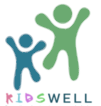ADHD (Attention Deficit Hyperactivity Disorder) is one of the most common
behavioral disorders in childhood. Systematic research presented that the
prevalence of ADHD in children is approximately around 2%-7%, with the
average reaching 5% globally. However, this prevalent disorder has been
depicted to present high concurrent comorbidity with other disorders including
specific learning disorders (e.g., reading disability). A diagnosis of ADHD is
associated with low academic attainment, premature cessation of education,
antisocial behaviour and substance misuse in adolescence (Loe & Feldman,
2007). Hence, it is vital to offer these children the adequate knowledge and
competences that will support their mental health, education and ensure a
high quality of life. It is undeniable that the Covid-19 pandemic has exerted a
negative impact on children’s mental health and their learning abilities,
specifically for children diagnosed with ADHD. The European Council
Recommendation of May 2018, analyzed the key competences that are
required on lifelong learning and elaborated on the significance of cultivating
the personal, social and learning to learn competences for children. They are
vital for children with ADHD, as they encompass the ability to reflect upon
oneself, effectively manage time and information, collaborate with others in a
constructive way, remain resilient and manage one’s own learning and career.
Improving these 3 categorical competences can act as a catalyst in the future
of children with ADHD, since they face challenges with communication,
interaction and stressful situations.
The KIDSWELL proposal uses the integration of technological learning
approaches (VR) for children with ADHD, to ensure the acquisition of the key
competences related to personal, social and learning to learn skills. Evidence
suggests that educators require support, not only for children with SEN, but
also with the use of emerging technologies. The European Framework for the
Digital Competence of Educators (DigCompEdu) emphasizes that key
competencies for educators include digital skills and gaining access to digital
resources, which are also depicted in the newly Digital Educational Plan by
the EC 2021-2027. Children with disabilities are viewed as needing special
placement and pedagogy, which runs counter to the philosophy of inclusive
education. This is especially true for children who have been diagnosed with
ADHD, which has become increasingly common. Moreover, the European
Disability Strategy 2021-2030 emphasizes the digital transformation and the
need to identify the digital skills required for applying assistive technology in
special needs education. Therefore, the need to educate and improve the
digital competences of educators is unavoidably increasing, as the
incorporation of technological-oriented tools in the field of education, is
surpassing the involvement of traditional methodologies when educating
children with ADHD (European Agency, 2022).
